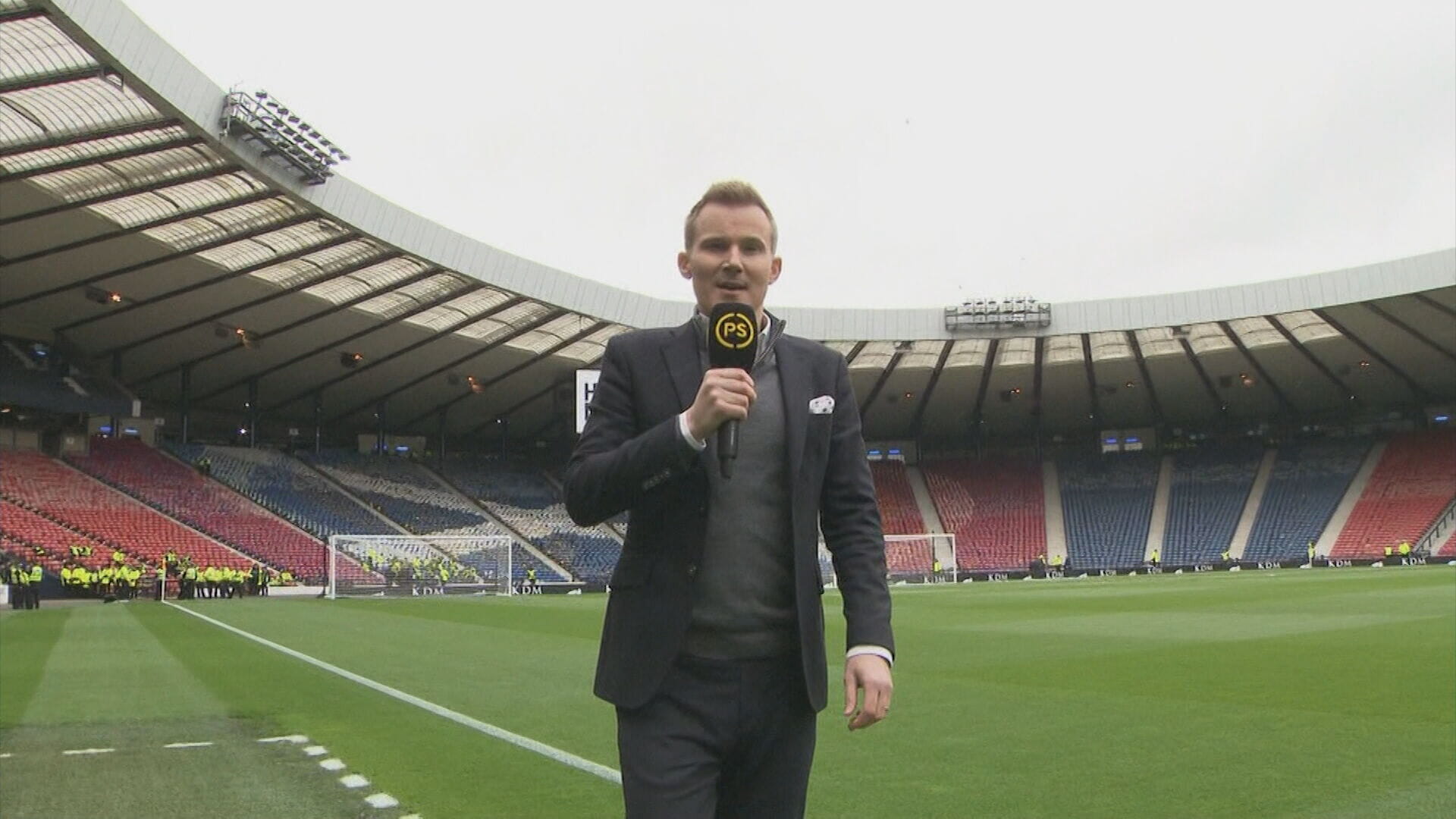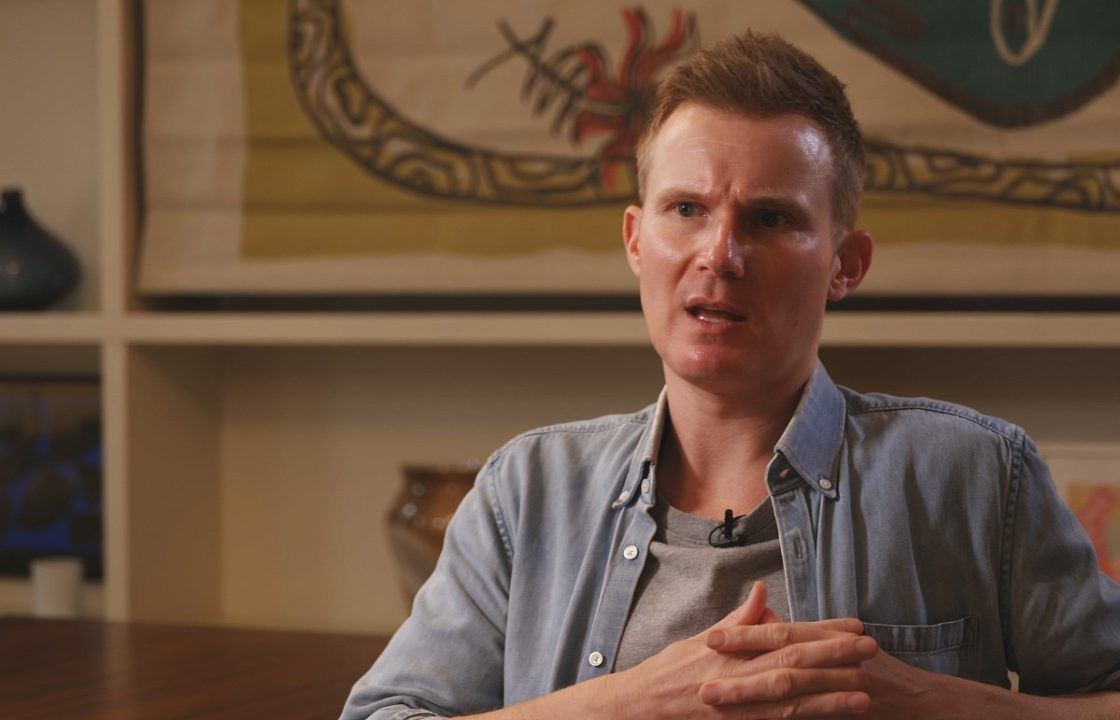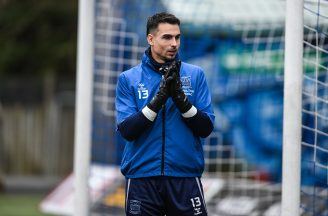Key Points
-
 Broadcaster Darrell Currie was forced to step away from live football coverage after suddenly falling ill during a Champions League broadcast in 2022
Broadcaster Darrell Currie was forced to step away from live football coverage after suddenly falling ill during a Champions League broadcast in 2022 -
 He described the onset of his illness as “like a bomb went off in my head” and said his body soon felt “completely broken”
He described the onset of his illness as “like a bomb went off in my head” and said his body soon felt “completely broken” -
 Over three years, he has undergone tests and treatment for conditions including Lyme disease, labyrinthitis, and arachnoiditis, but doctors have not confirmed a cause
Over three years, he has undergone tests and treatment for conditions including Lyme disease, labyrinthitis, and arachnoiditis, but doctors have not confirmed a cause -
 Now under natural treatment in London, he says he is focusing on recovery and family life rather than chasing a return to broadcasting
Now under natural treatment in London, he says he is focusing on recovery and family life rather than chasing a return to broadcasting
Darrell Currie is one of the most recognisable faces in Scottish football.
For over a decade, the Glasgow-born broadcaster fronted European nights, domestic cup matches and Premier League coverage for BT Sport and Premier Sports.
But his career came to a sudden halt when he was struck down by a debilitating illness that left his body “completely broken. Three years on, he is still searching for answers.
Darrell, 43, told Scotland Tonight: “It felt like a bomb went off in my head. It honestly was like an explosion inside my brain.
“I remember, in the middle of a chat, sort of holding onto my chair. It felt like there had been an earthquake in the studio.”
The moment came during a live broadcast of Celtic’s Champions League clash with Real Madrid in September 2022. Despite the symptoms, he pushed through and continued working for another three weeks.
But he realised something was seriously wrong during Scotland’s Nations League match against the Republic of Ireland at Hampden several weeks later.
 Premier Sports
Premier SportsHe said: “That night I knew it was too much. And I just thought ‘I’m going to fall over. I’m going to black out. This is really bad’.
“So I got into the second half and I texted the producer saying, ‘how long is the post-match?’ Because it was hard to stand up. And at that point, the senior producer from Premier Sports came into the stadium from the TV trucks outside and said to me, ‘I think you should go home’.
“I left the stadium and thought to myself, ‘It’s going to be a long time before I’m back.’”
That realisation proved to be true, and the months that followed were the toughest of Currie’s life.
“There were so many weird symptoms, including the dizziness and everything else, but it was like my body was completely broken,” he said.
“There was almost no function. I was in bed for a couple of days. Probably at that time I thought, ‘I could die here’, because they were giving me everything.
“Doctors were sending medication, pain killers, the strongest stuff you can imagine. And nothing was helping at all. I thought, ‘this might be it.’
“You still think, ‘why me?’ There would be times I was lying in bed and saying to my wife, ‘I just want to die because it can’t be worth living on like this, I don’t want to be the burden’.
“My wife would call my mum sometimes, almost like she was trying to get me in trouble. But I couldn’t speak because it was impossible to get words out through emotion and everything else.
“They would always kind of just talk me round. I mean, I want to make clear I was never at a point where I ever felt like I was going to do something terrible, but in my mind it was the question of is it worth it?
“Is it worth being alive if things were gonna get worse?”
Over the past three years, Darrell has been treated and tested for a range of conditions, from arachnoiditis (a rare form of spinal inflammation) to multiple sclerosis and Lyme disease.
He is now seeing a doctor in north London, who has recommended natural treatments.
While Darrell doesn’t know whether they are curing him, he says he is starting to feel stronger and is no longer chasing answers.
But he hasn’t stepped inside a football stadium in three years.
 SNS Group
SNS Group“I do miss the people and I miss the broadcasting at times,” he said. “I think at the start, when you get ill, you chase getting back to where you were, and I think this feeling of, ‘I need to get back to where I was’ is in your head a lot at the start when you’re unwell.
“It’s not healthy, so after about a year, I sort of lost the feeling of desperation to get back. It was more, ‘I need to live. I need to be alive for the sake of my family.’”
Darrell says he has had more than 20 MRIs and continues to live with uncertainty.
“There was nothing that was really completing the story to say, ‘this is what’s wrong with you’, and it was a medical merry-go-round,” he said.
“I could tell they had no idea what was wrong with me and they were just giving me medication. I would go back and eventually I would take them because… you trust, don’t you?
“I got diagnosed with Lyme disease – chronic Lyme disease, I was told. And then we started thinking about growing up in Scotland. Was I bitten by a tick?
“I had three blood tests from labs around the world that are apparently gold standard for Lyme disease and they came back positive, positive, positive. At that point I thought this has to be a big part of the puzzle.
“I dived into this treatment. I did six months of antibiotics and they were saying I had to go and do intravenous antibiotics off the back of that and the quotes were eyewatering.
“Tens of thousands of pounds… I couldn’t keep on spending money. I was running out of money and you have to prioritise.”
 Getty Images
Getty ImagesHe also said he had concerns about his reaction to the coronavirus vaccine during the pandemic.
“I’ve always been slightly reluctant to talk about the Covid vaccine, but I had side effects and I felt like I had to take that vaccine for my job.
“I think if I could have done one thing differently, I would have got the information on that vaccine because after the first vaccine, I got tinnitus really bad within about 12 hours.
“I had three vaccines and after the second and third, I had weird things like pins and needles in my arms. It felt like my mouth was almost vibrating. I’ve now been told that those were what they call minor allergic reactions.
“I don’t know how big a part of my story that is.”
The NHS says Covid-19 vaccines in use in the UK have all met strict standards of safety, quality and effectiveness and have been extensively reviewed by the independent Medicines and Healthcare products Regulatory Agency (MHRA).
More serious side effects, such as a severe allergic reaction are very rare, and the MHRA says the benefits of the vaccines in preventing Covid-19 and serious complications associated with the virus far outweigh any currently known side effects.
Three years on, Darrell still doesn’t know what caused his illness.
But he is determined to focus on recovery and family, rather than the career that once made him one of Scotland’s most familiar sporting voices.
Watch the full interview on Scotland Tonight: A Conversation with Darrell Currie tonight at 8.30pm on STV and STV Player.
Help and support is available now if you need it.
The Samaritans can be contacted any time, from any phone, free on 116 123, email at jo@samaritans.org, or visit samaritans.org to find your nearest branch. Details of other services and more information can be found on the NHS website here.
Follow STV News on WhatsApp
Scan the QR code on your mobile device for all the latest news from around the country





























